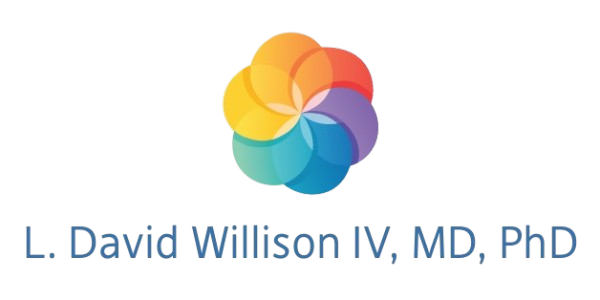Autism
AUTISM
AUTISM
What Dr. Willison Treats

Autism spectrum disorder is a developmental condition that can create significant challenges with communication and behavior. Child, adolescent, and adult psychiatrist Dr. L. David Willison IV, MD, PhD, helps patients of all ages cope with autism spectrum disorders at his private practice in Los Angeles. If you think that you or your child may have autism, call to book an appointment today.
What Dr. Willison Treats
DID YOU KNOW?
Frequently Asked Questions
What is autism?
Autism spectrum disorder is a condition that affects communication and socialization with others. Although this condition can be diagnosed at any age, autism is considered a developmental disorder because symptoms typically appear within a child’s first two years.
Autism is referred to as a spectrum disorder because people affected by it experience such a wide variation in the type and severity of their symptoms. Autism spectrum disorder encompasses conditions that were previously considered separate, including Asperger’s syndrome, autism, and pervasive developmental disorder not otherwise specified (PDD-NOS).
What are the signs and symptoms of autism?
People with autism spectrum disorder have trouble with social, emotional, and communication skills. They may demonstrate repetitive behaviors and resist changes to their daily routine. Children and adults with autism spectrum disorder may show the following signs and symptoms:
- Avoiding eye contact and wanting to be alone.
- Failure to respond to someone calling their name.
- Not knowing how to talk to or play with others.
- Difficulty expressing emotions or feelings.
- Preferring not to be held or cuddled.
- Difficulty starting or maintaining a conversation.
- Speaking with an abnormal tone or rhythm, such as a singsong or robotic voice
- Repetitive behaviors, such as repeating certain words or phrases.
- Having intense interest in certain subjects, such as numbers or facts.
Many people with autism spectrum disorder experience challenges, but they may also have strengths, such as excelling in math, science, art, or music.
What is the process of treating autism?
Autism has no cure, but early diagnosis and treatment from Dr. Willison can dramatically improve the quality of life for you and your child. Because of the wide variety of symptom types and severity in autism spectrum disorder, there is no single treatment that works best for everyone.
Dr. Willison carefully evaluates your child and develops an individualized treatment plan that may include:
- Medication to treat symptoms.
- Behavior and communication therapy.
- Educational programs to improve social skills.
- Family therapy to help loved ones promote social interaction.
If you suspect your child may have autism spectrum disorder, call L. David Willison IV, MD, PhD, to book an appointment today.
DID YOU KNOW?
Frequently Asked Questions
What is autism?
Autism spectrum disorder is a condition that affects communication and socialization with others. Although this condition can be diagnosed at any age, autism is considered a developmental disorder because symptoms typically appear within a child’s first two years.
Autism is referred to as a spectrum disorder because people affected by it experience such a wide variation in the type and severity of their symptoms. Autism spectrum disorder encompasses conditions that were previously considered separate, including Asperger’s syndrome, autism, and pervasive developmental disorder not otherwise specified (PDD-NOS).
What are the signs and symptoms of autism?
People with autism spectrum disorder have trouble with social, emotional, and communication skills. They may demonstrate repetitive behaviors and resist changes to their daily routine. Children and adults with autism spectrum disorder may show the following signs and symptoms:
- Avoiding eye contact and wanting to be alone.
- Failure to respond to someone calling their name.
- Not knowing how to talk to or play with others.
- Difficulty expressing emotions or feelings.
- Preferring not to be held or cuddled.
- Difficulty starting or maintaining a conversation.
- Speaking with an abnormal tone or rhythm, such as a singsong or robotic voice
- Repetitive behaviors, such as repeating certain words or phrases.
- Having intense interest in certain subjects, such as numbers or facts.
Many people with autism spectrum disorder experience challenges, but they may also have strengths, such as excelling in math, science, art, or music.
What is the process of treating autism?
Autism has no cure, but early diagnosis and treatment from Dr. Willison can dramatically improve the quality of life for you and your child. Because of the wide variety of symptom types and severity in autism spectrum disorder, there is no single treatment that works best for everyone.
Dr. Willison carefully evaluates your child and develops an individualized treatment plan that may include:
- Medication to treat symptoms.
- Behavior and communication therapy.
- Educational programs to improve social skills.
- Family therapy to help loved ones promote social interaction.
If you suspect your child may have autism spectrum disorder, call L. David Willison IV, MD, PhD, to book an appointment today.
